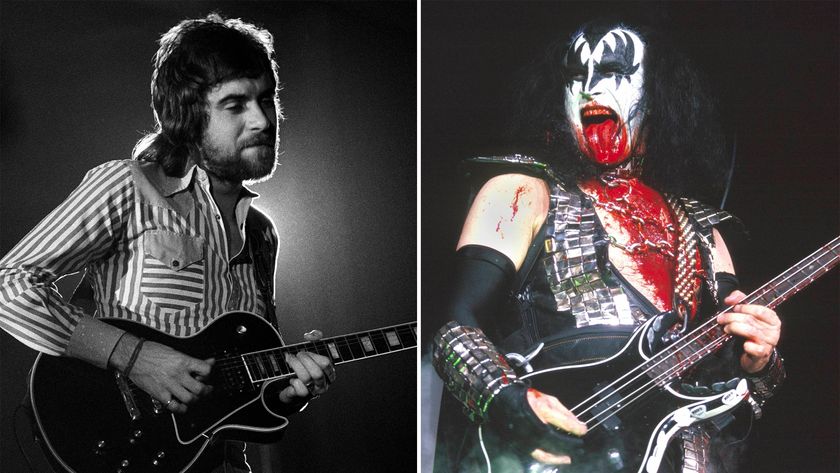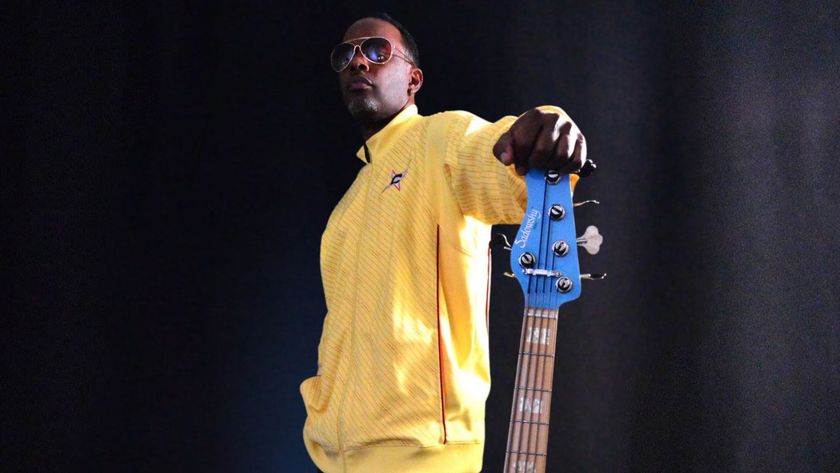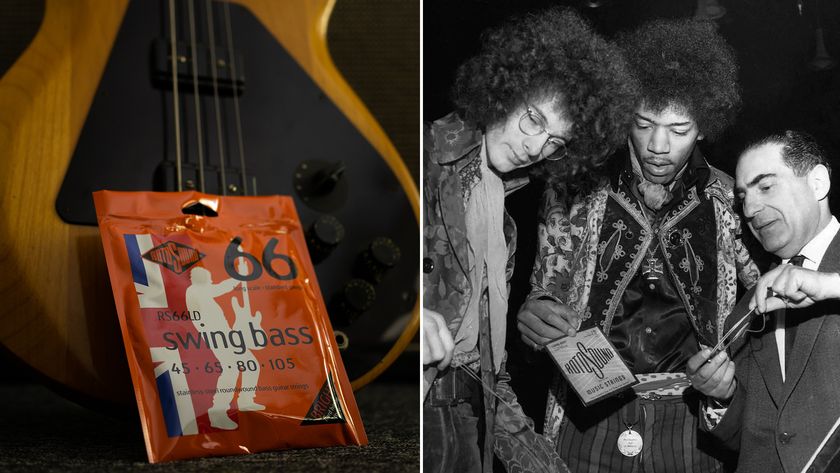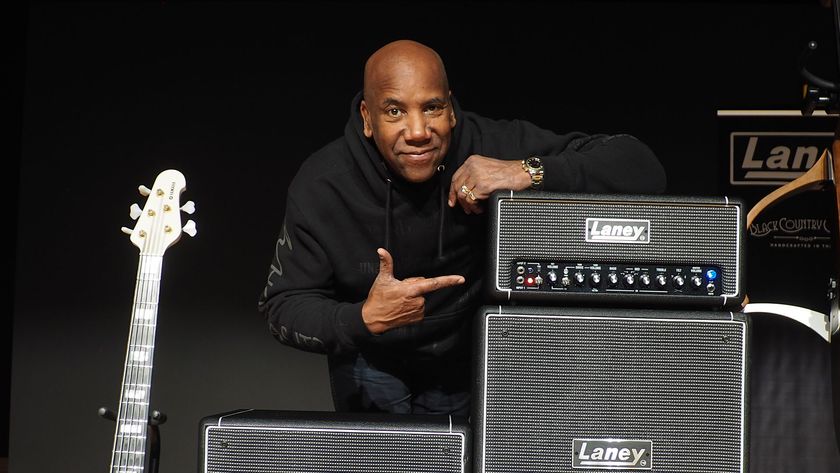The Lemon Twigs: "This record kind of comes at you and either hits you positively or negatively"
After two enormous, game-changing concept albums, The Lemon Twigs dial things back a notch for their ambitiously lowkey third album

It's not exactly common that a relatively straightforward pop-rock album would be a shock to the system for any pop-rock band’s fanbase. But then again, The Lemon Twigs are anything but straightforward. In a storied six years, the Long Island‑native duo, comprised of emphatic and eccentric brothers Brian and Michael D’Addario, have made quite a name for themselves as wickedly experimental and obsessively ambitious, whose retro-flavoured concept albums (like 2018’s Go To School) simply need to be heard to be believed.
Songs For The General Public is their third album, and although it did end up straying a good slick to the left of your standard Top 40 fare, it started off conceptually as just that: an album Brian or Mike could hand any regular fan of pop or rock (albeit hopefully one with a soft spot for the old-school psychedelic era of such) and immediately convert them to the cult of the Twigs. And it is an easily approachable album, in all the best ways one could be – catchy, fun, stimulating – without ever veering into mundane territory.
Above all, what The Lemon Twigs have mastered with Songs For The General Public is the ability to make their trademark stylistic schtick – bright, throwback thrillers packed from start to finish with instrumental idiosyncrasy – work for listeners who may not typically be so musically adventurous. It’s an entry point to their one-of-a-kind sonic circus: if you dig what you hear on this LP, there’s a good chance they can rope you into either of its more out-there predecessors. And by that point, just try to shed your obsession with this deliriously dynamic duo.
Australian Guitar caught up with Brian to chat about how the band set out to make set of Songs For The General Public, what’s next on the cards (spoiler: something entirely different), and why you just can’t beat the good ol’ Fender Strat for a great guitar-pop tune.
After putting out a record like Go To School – this sprawling, conceptual epic about a chimpanzee raised as a human boy – did it feel like an obvious decision to follow it up a looser and more down-to-earth record?
Yeah. I really like the idea of having all of our records be very contrasting and going in a totally different direction with every new one that we make. For example, with this record, we’ve made a pretty straightforward pop album, and there are tonnes of records that we’ve started floating around, but the one that I want to finish next is a really sparse acoustic record.
Because there’s a lot going on with this one – every song is very big and powerful, and we were just kind of throwing every idea that we had onto them. Some more than others, of course – there weren’t any strings on this record, for example, but they’re all pretty heavily arranged and there’s lot of instruments and synths and stuff. So for the next one, we want to be very natural.
So far it seems like everything that we’ve done has been, in a way, a response to what we did before it. We’re trying to approach The Lemon Twigs from a very different angle every time we do. We could produce all of our records the same way – I mean, our songwriting style is kind of just our songwriting style, that’s always the same – but then it wouldn’t be as interesting or fun.
Get The Pick Newsletter
All the latest guitar news, interviews, lessons, reviews, deals and more, direct to your inbox!
So in making an album that would appeal to the general public first and foremost, did you find that you had to… Not necessarily water yourselves or your style down, but consciously avoid getting too weird or experimental with some of these songs?
Not really. I mean, the title itself – in the middle of the recording process, we thought the album would be titled Hell On Wheels. Because once we introduced those types of songs – like “Hell On Wheels” and “Leather Together” – the whole thing took on a very different attitude. It wasn’t just, like, “These are pop songs and this a pop Lemon Twigs record” anymore; it was about a directness that we felt calling to us.
The title doesn’t really have to do with this album necessarily being for everybody; there is a sense of reaching out – whether it hits them negatively or positively – and it’s not like there’s this record that exists and you have to kind of get inside it, y’know? This record kind of comes at you and either hits you positively or negatively. We wanted you to be able to hear everything and soak in all the instrumentation, but it didn’t mean that we weren’t going to throw some things off-kilter.
And then once we finished the record and we started playing it for people, I started to realise that the title is almost ironic, in a way. I was like, “Okay, this isn’t the radio-friendly pop album I thought it was.” We thought that we were appealing to what people like, but we were obviously just appealing to what it is that we think people like – which we’re so disconnected from. We don’t know what people like – we just know what we like.
What guitars were you playing for this record?
I used a Fender Strat for the most of it. For song “Fight” we used a BC Rich guitar alongside the Strat, but we used the BC Rich for all of the lead stuff. It was a Mockingbird – it’s the one that Slash played, and it was such a beautiful guitar. Michael used this Gibson at Sonora [Studios] in LA that actually got stolen – this Gibson that was made out of a table. I guess it wasn’t even really a Gibson, it was a custom guitar that had a Gibson neck and a chunk of wood from an old 18th or 19th century dining table for the body. It had a very heavy sound.
What is it about the Strat that just makes your heart skip a beat?
I like the way that mine feels. It’s very comfortable – I’ve played it onstage more than any other guitar, and the ideas just kind of flow from it for me. If I’m in a studio or something, and there are all these guitars that are unfamiliar to me, it’s kind of hard to be creative.
But y’know, I don’t necessarily have a loyalty to the Strat or anything – it’s just the guitar that I gravitate towards most because I know my way around it. When there’s a guitar that you haven’t really used that much, or a tone that you’re not really familiar with, sometimes it’s hard to work with. But when it’s that guitar, I know exactly what i’m doing. I’m just so comfortable with it.
Do you find that you and Michael have very different approaches to the guitar?
Oh yeah! I mean, you can hear it all over the record: “The One” and “Live In Favour Of Tomorrow”, those are my songs, and they have a very slick style which I like to play with – the solos are pretty well thought-out and smooth. And with Michael’s guitar playing, like on “Hell On Wheels” or “Leather Together”, it’s like everything is so spontaneous, and it has a really exciting, kind of rough sound. And y’know, one is good for certain songs, and the other is good for other songs.

Ellie Robinson is an Australian writer, editor and dog enthusiast with a keen ear for pop-rock and a keen tongue for actual Pop Rocks. Her bylines include music rag staples like NME, BLUNT, Mixdown and, of course, Australian Guitar (where she also serves as Editor-at-Large), but also less expected fare like TV Soap and Snowboarding Australia. Her go-to guitar is a Fender Player Tele, which, controversially, she only picked up after she'd joined the team at Australian Guitar. Before then, Ellie was a keyboardist – thankfully, the AG crew helped her see the light…

“I had to use the same microphone that Gene Simmons used with all the blood coming out of his mouth. Can you imagine that!”: Mick Rogers recalls Kiss supporting Manfred Mann's Earth Band in their early days

“Once Dave got his Roland Space Echo, it changed the vibe… that, and a lot of marijuana”: They inspired everyone from Oasis to the Smashing Pumpkins. Now English post-punk luminaries the Chameleons are back for more










